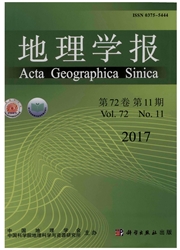

 中文摘要:
中文摘要:
龙山文化早、中期(2600BC-2300BC),沂沐河流域气候暖湿。以水稻种植为主的农业十分发达,社会全面繁荣,聚落遗址的数量得到了极大的扩展。2260BC前后开始的降温,对龙山文化中、晚期(2300BC~2000BC)的面貌造成了显著影响。气温下降,使得水稻产量大幅度下降甚至绝产.加剧了人口与资源之间的矛盾.随之而来的便是人口的大量减少和文化面貌的改变。2000BC前后龙山文化被较为落后古朴的岳石文化所取代。
 英文摘要:
英文摘要:
Neolithic culture series in Yishu River basin developed in the order of Dawenkou culture-Longshan culture-Yueshi culture. In the period of Dawenkou culture, the ancient culture developed rapidly. During the period of Longshan culture, the ancient culture reached climax, having a magnificent time. The ancient culture decayed significantly in Yueshi culture period. According to the study on the records of environmental changes about Yishu River basin, using ^14C dating, δ^13C, grain size, magnetic susceptibility and geo-chemical analysis, we acquired high-resolution sequence of environmental changes from 2970BC to 1050BC: 2970BC-2260BC, the climate of study area was warm and wet; 2260BC-1880BC, the climate had a mutation with an extensive temperature drop; and 1880BC-1050BC, the climate changed greatly. During the early and middle stage of Longshan culture (2600BC-2300BC), the climate in the Yishu River basin was warm and wet. Paddy-oriented agriculture planted paddy was very well developed. The society was flourishing with great amount of archaeological sites. The cooling starting in 2260BC made the paddies shortfall in output or even no seeds were gathered. This situation intensified the discrepancy between population and resource. The scarcity in natural resources led to susbstantial decrease in population and subsequent drop in archaeological sites. About 2000BC Longshan culture was displaced by Yueshi culture which was relatively underdeveloped, simple and unsophisticated.
 同期刊论文项目
同期刊论文项目
 同项目期刊论文
同项目期刊论文
 期刊信息
期刊信息
